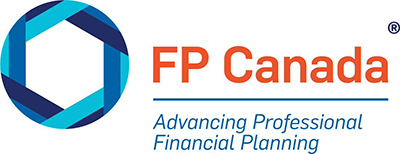- Research examines why the use of home equity to fund retirement shortfalls remains low.
- It examines the technical aspects of home equity release schemes (HERS) and the impact of behavioural biases influencing their use.
- It investigates the views Canadians have about accessing their home equity and the perspectives of Canadian financial planners towards recommending it.
TORONTO, Sept. 26, 2023 /CNW/ - The largest component of household wealth for many people in or entering retirement is home equity. As life spans increase and retirement periods grow, one might expect to see more people dipping into the equity in their homes. Yet only a small proportion do.
That's because there are several barriers to the effective use of home equity release schemes (HERS), which allow homeowners to tap into the value of their homes.
The Canadian Foundation for Financial Planning (formerly the FP Canada Research Foundation) has funded new research from Vishaal Baulkaran, Associate Professor of Finance at the Dhillon School of Business at University of Lethbridge and Pawan Jain, Interim Chair and Associate Professor of Finance, Department of Finance, Insurance, and Real Estate at Virginia Commonwealth University to investigate the use of home equity release schemes (HERS) in retirement.
Researchers surveyed 1,200 Canadian consumers, ranging from those who should perhaps consider retirement planning to those who are retired. They also surveyed nearly 500 financial planners who hold CFP® certification or QAFP® certification. Almost half (49%) of consumers reported working with a planner.
Participants were surveyed about their attitudes towards accessing or recommending HERS, as well as their familiarity with them. Seven strategies were evaluated, including reverse mortgages, home equity lines of credit (HELOCs), and downsizing to buy a smaller home or rent a home, among others.
Here are just a few key findings:
- Homeowners are generally willing to access home equity when faced with financial hardships, such as paying for care or nursing.
- Equity release products are more attractive to consumers when recommended by a planner.
- Emotional obstacles, coupled with the costs and complexity of equity release products, prevent consumers from using them to fund retirement.
- Planners report feeling comfortable providing advice about HERS, yet their preferred recommendation for extra income in retirement is selling investments.
- Behavioural biases and a lack of knowledge of HERS products on the part of planners can lead to lower adoption of these products.
The research confirms that Canadians who work with financial planners are better prepared for retirement. That said, many planners could be doing more to help their clients tap into what is often their biggest asset.
Unfortunately, various factors are leading to reduced adoption of HERS. They include the perceived complexity of these products on the part of clients, planners' gaps in technical knowledge, and behavioural biases on the part of both clients and planners.
The good news is, there are steps planners can take to help clients make the most of HERS:
- Improve their technical knowledge about home equity release products and strategies and effectively educate their clients about available options.
- Remain vigilant against bias impacting their willingness to consider HERS. Bias affects everyone, but planners must be aware of it to ensure their recommendations are appropriate.
- Evaluate strategies rigorously, considering all aspects of any release strategy being considered.
HERS aren't right for every client, but they're a helpful strategy for many. For this reason, planners should be open-minded when it comes to their use – and ensure they're incorporating their clients' full financial picture into their retirement income plans.
To learn more, visit the website to read the research paper and executive summary. You'll also find the practice notes, which are designed to help financial planners apply insights from the research.
The Canadian Foundation for Financial Planning is an independent registered charity dedicated to improving the lives of Canadians by supporting widespread access to the benefits of financial planning. Our work impacts all Canadians, no matter their financial circumstances. Through our research, partners, and volunteer financial planning professionals, those who need it most will have improved access to financial planning advice, and the knowledge and skills to feel financially secure and enhance their financial well-being – something every Canadian needs and deserves.
SOURCE FP Canada

For media inquiries, please contact: Lee-Anne Goodman, FP Canada, [email protected]

Share this article